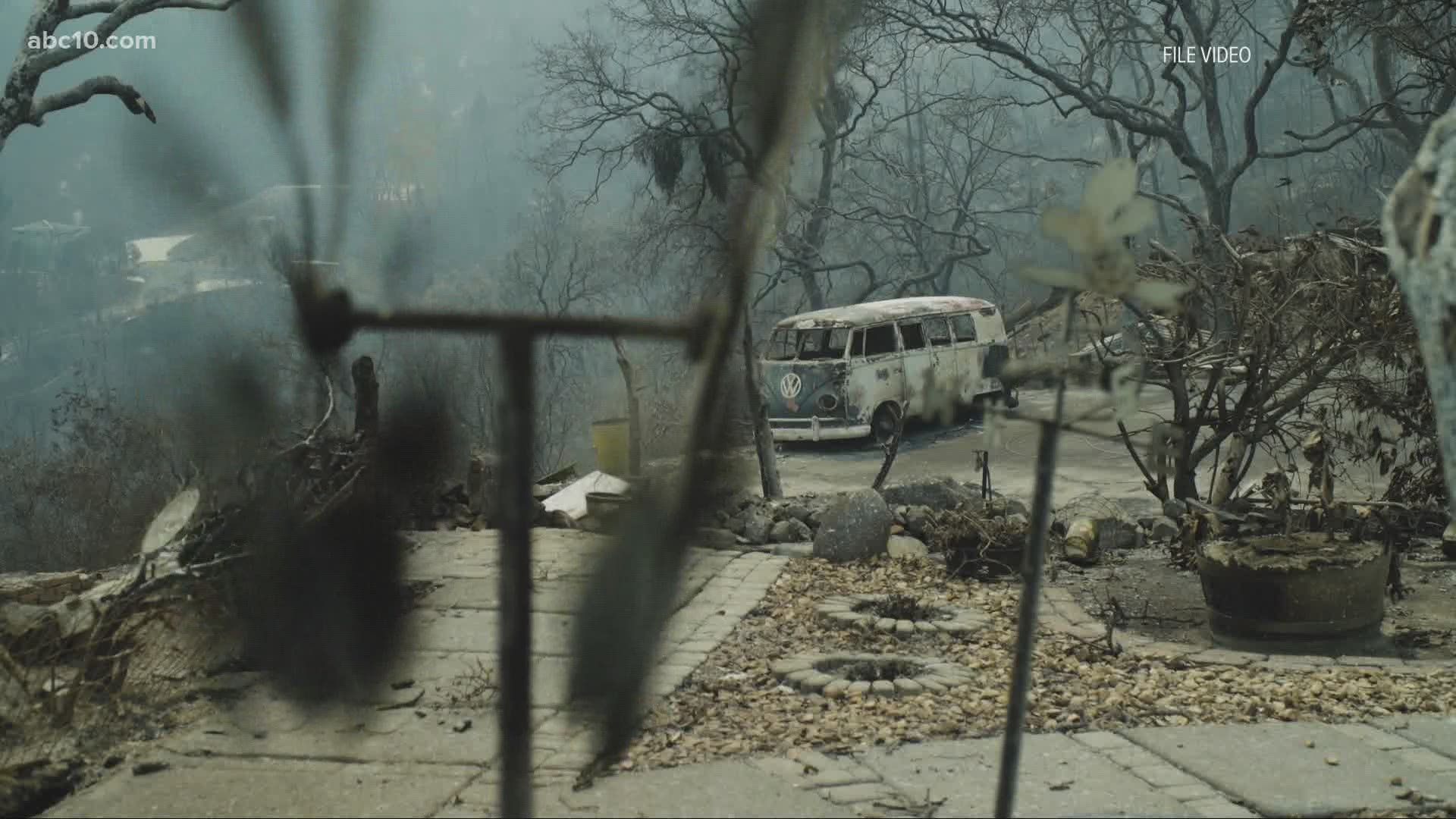SACRAMENTO, Calif. — California lawmakers are running out of time and may abandon a last-minute bill that would have raised $3 billion for wildfire and climate change projects by extending an existing fee on some utility customers.
The proposal, AB 1659, was introduced just five days before the end of the legislative session, with some lawmakers complaining they didn’t have sufficient time to review it. As the complex bill chugged through the legislative process, it was amended at each stop and faced broad-based opposition from legislators in both parties.
It was unclear today if the bill would move out of the Senate as legislators furiously worked to finish business by today’s deadline for sending legislation to the desk of Gov. Gavin Newsom. But even if it is sent back to the Assembly, that chamber’s leadership was not prepared to support it.
“Wildfire prevention and climate change are important issues in California, and deserve thoughtful discussion to figure out potential funding proposals,” said Assembly Speaker Anthony Rendon.
The funding package was aimed mainly at preventing wildfires, but also provided millions to restore state parks, local forest-thinning projects and conservation projects. Ultimately it proved to be too cumbersome to move on.
“Our leadership was not comfortable with shoehorning this into the last minute of the session,” said Hugh Bower, chief of staff to Assembly Speaker Pro Tem Kevin Mullin, who co-authored the bill along with Assemblyman Richard Bloom, a Santa Monica Democrat.
Bower said much of the bill’s focus was on fire prevention rather than for immediate fire suppression, so lawmakers believed the bill could wait to be fleshed-out and reintroduced when the legislature reconvenes in January.
State officials assured the bill’s authors that California had enough funding to deal with the current wildfire siege, Bower said. The bill requires a two-thirds vote of each chamber to pass.
In other action, the legislature on Sunday passed a bill that would ease restrictions on California’s inmate firefighters who seek to work for state agencies, potentially adding to the state’s fire efforts.
The legislation, AB 2147, would speed up the process of expunging the former inmate’s criminal record, allowing them to apply for various state-issued licenses, including an emergency medical technician license, a prerequisite for state and local firefighting jobs. It excludes some felons from applying.
The state has relied on inmate crews to fill gaps in staffing, but that assistance was thin this year as state prisons released inmates early because of the coronavirus. The legislation now goes to the governor for his decision.
For the utility fee funding bill, some legislators launched late-hour efforts Sunday to craft a drastically stripped-down version — retaining only the $500 million for current fire projects. But they were not immediately successful. Amending a bill so close to Monday’s end of session is unconstitutional, although that prohibition can be waived by the governor in case of emergency.
Assembly Speaker Anthony Rendon said that threshold was not met in this case.
The emergency rule “is designed to provide transparency, and overturning it should be done sparingly,” he said in a statement provided to CalMatters. “Wildfire prevention and climate change are important issues in California, and deserve thoughtful discussion to figure out potential funding proposals.”
The bill was accompanied by robust debate, laying bare an agonizing tug of war between the urgent need to fund wildfire and climate change projects and the realities of a budget shriveled by the economic stress of the coronavirus response.
The legislation, which also sets aside $2.5 billion for fire and climate change-related projects, would have piggy-backed on a 2019 law that authorized a fee on electrical customers’ bills to create a $21 billion insurance fund to pay for utility-caused fire damage. The bill would extend that fee until 2045.
Lawmakers said the cost to ratepayers would be less than $1 dollar a month and would yield more than $2.5 billion in bonds.
Some legislators and others criticized the targeting of only customers of the state’s three largest utilities— Pacific Gas & Electric, Southern California Edison and San Diego Gas and Electric— effectively requiring them to underwrite fire prevention projects that benefit all Californians.
The funding package was aimed mainly at preventing wildfires, but also provided millions to restore state parks, local forest-thinning projects and conservation projects.
Consumer advocates characterized the bill as a “backroom deal” and pointed out that ratepayers had already been asked to pitch in to pay for wildfire projects.
“There will be fires next year, are they going to come back and ask for more?” said Mark Toney, executive director of the ratepayer advocacy group The Utility Reform Network. Toney estimated that the recent proposal would eventually saddle ratepayers with at least $7 billion, after interest and fees are calculated.
The proposal included immediate and longer-term uses for the funds. The first would borrow $500 million for firefighter training and for fire prevention projects, to begin a month after the bill is signed into law. That is the piece of the legislation that some lawmakers were attempting to craft into a new bill over the weekend.
The second part, to be developed in six months, allocates funds for a long list of priorities, including home hardening, creating defensible space and investments in public safety, particularly in low-income communities
Both funds would be overseen by the Public Utilities Commission and the state Natural Resources Agency.

